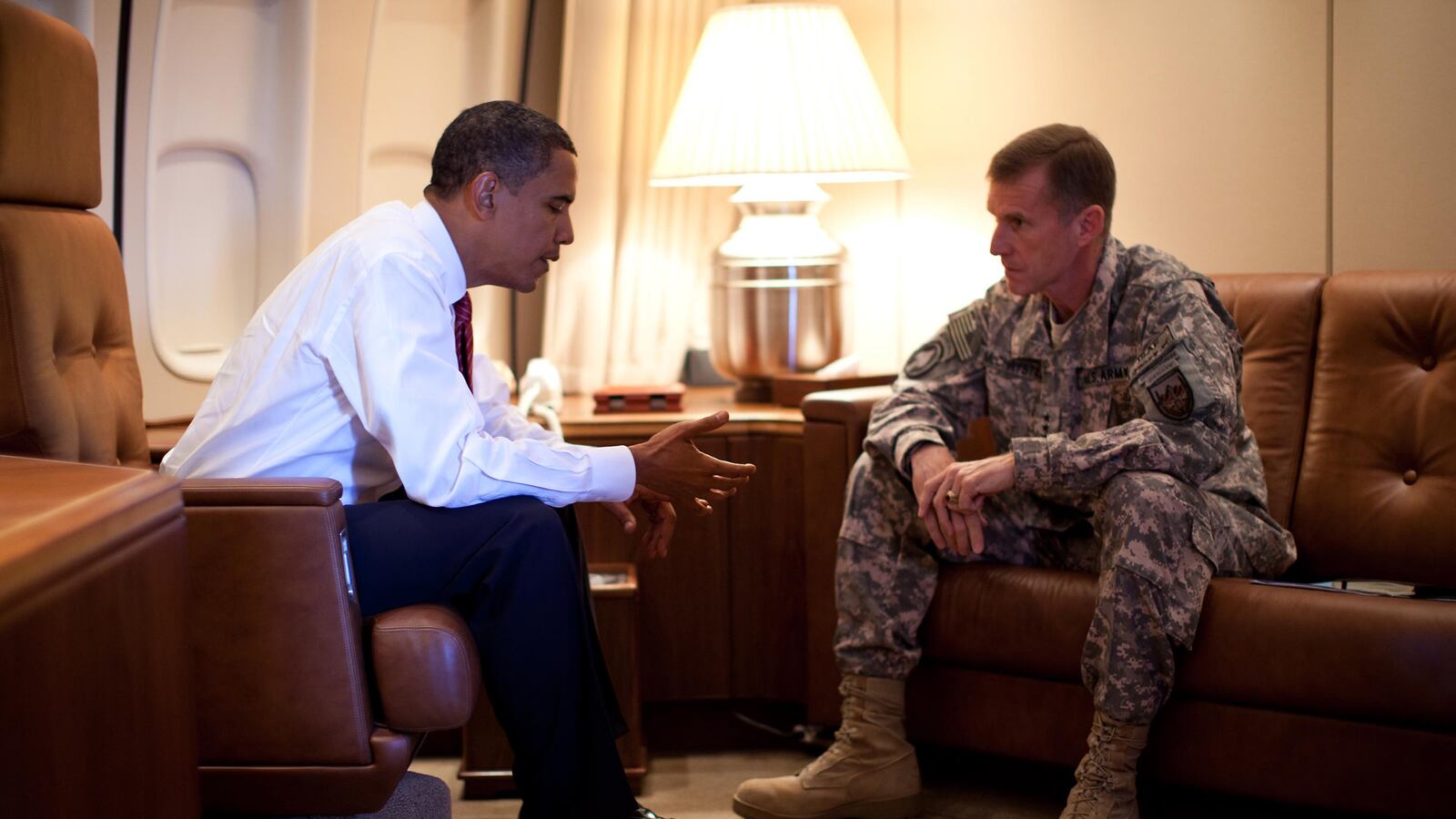Of President Obama’s failures, the most puzzling may be his record on national service. Now, thanks to a military man he fired, retired Gen. Stanley McChrystal, he has a chance to redeem himself.
Obama started off well, championing service repeatedly during the 2008 campaign. Within months of taking office, the president signed the Edward M. Kennedy Serve America Act, which aimed to triple the positions offered through AmeriCorps.
That program has long enjoyed bipartisan support for its work over the last 20 years supplying more than 800,000 fresh-faced corps members to help in schools, hospitals, senior centers, veterans affairs, disaster relief, conservation and other vital services. With local control, no scandals and Republicans like John McCain, Dan Coats, John Kasich and even Rick Santorum supportive, AmeriCorps seemed poised to go to the next level.
Then the president dropped the ball.
Faced with Rep. Paul Ryan’s mindless ideological efforts to kill AmeriCorps altogether, Obama has done little to expand the number of slots to 250,000 as called for in the 2009 law. Where both Bushes and Bill Clinton placed close friends in charge of national service efforts—guaranteeing consistent presidential attention—Obama sees it as a third- or fourth-tier issue championed by aides he barely knows. The 71,000 enrolled in AmeriCorps last year was actually below the service positions in 2006-2008 during the Bush administration.
The president rarely talks publicly about national service, and White House Chief of Staff Denis McDonough has been caught rolling his eyes in private meetings when the subject comes up, as if it’s about little more than humoring do-gooders.
It's true that “service” has taken on a musty quality, worn out from overuse by high school seniors reporting on trips to Costa Rica in their college essays. And it’s not a signature Obama issue. Because Clinton is so closely identified with AmeriCorps (which launched under him), Obama has instead used his new White House Office of Social Innovation to focus on broader goals like financial literacy.
But the success of AmeriCorps is beyond dispute: Unemployed young Americans without high school diplomas find that signing up increases their odds of a GED and employment by more than 50 percent. And the program actually saves money. For every federal dollar invested in service, the government recoups more than two. For instance, FEMA-Corps (an Obama initiative) saves $70 million a year by using corps members instead of contractors at the scene of natural disasters.
It's the less tangible potential of national service that really counts. The country is fragmenting along economic, ethnic, and cultural lines. Americans even segregate politically, leading to 90-10 voting patterns in thousands of precincts. By mixing classes, national service addresses this retreat from our founding democratic principles and helps close the gap between military families with a commitment to service and the rest of society.
Now comes a new effort to kick the movement into high gear. Last week, on the 70th anniversary of D-Day, McChrystal, former commander of U.S. forces in Afghanistan, hosted a summit in Gettysburg, Pennsylvania, to take up the “unfinished work” of creating the stronger, more just nation that Lincoln envisioned 151 years ago in his magnificent address nearby.
I’ve attended many such conferences over the years, most of them lacking the focus necessary to push national service forward. This one, sponsored by the Aspen Institute’s Franklin Project, could be different.
McChrystal’s big idea is that every young American between the ages of 18 and 28 should be eligible for a year of service before, during, or after college. A “service year” wouldn’t be mandatory but “a cultural expectation, a common opportunity, and a civic rite of passage.”
Even though the cost—$18 billion a year (the equivalent of a few corporate tax loopholes)—seems prohibitive right now, the vision is critical. “The idea is fairly simple,” McChrystal says. “We make America better by making better American citizens.” His goal is 1 million national service slots by 2023, by which time he hopes it will be a normal route to school and jobs, paid for through public-private partnerships.
Sending kids to college at 19 instead of 18 would make them better students (veterans educated in the late 1940s under the GI Bill were superior students because they were older and had served), less prone to binge drinking and other freshmen problems and—most important, especially for those headed for community college and in grave danger of dropping out—more likely to finish.
McChrystal argues that service confers empathy, patience, discipline, willingness to sacrifice, and a sense of empowerment. Echoing an essay he wrote in the current issue of the journal Democracy, which features a symposium on national service, he told his Gettysburg audience that service “instills values like grit and persistence, the very skills that predict career success and that employers are seeking.” Programs like City Year, Youth Build, Green City Force Corps, and Teach for America have already proven as much, but today fewer than one in six applicants can get into AmeriCorps programs.
The challenge is to embed the “cultural expectation” of a service year. The recent endorsement of the idea by hundreds of McChrystal’s fellow military officers will help. If U.S. News’ college rankings, admissions offices, civil service exams, and employers offer a “service year preference” (like the “veterans’ preference” already in place in many government agencies), the idea will be more likely to take flight.
McChrystal is probably best known for having been relieved of his command in 2010 after Rolling Stone quoted him making critical remarks about Vice President Joe Biden and others. Now the president who fired the general needs to embrace his idea.
Obama still has time to secure his legacy on this. He has already expanded the money-saving FEMA Corps idea to new special corps in federal agencies that help with school turnarounds, conservation (a modern-day Civilian Conservation Corps), veterans, and, last week, young immigrants (“Dreamers”) who arrived as children and need help navigating deportation hearings.
If the president lends his rhetorical gifts to the service year idea, early and often, he will lay the groundwork for his successor to enact a major cultural change in what we expect from each other, and from ourselves.






